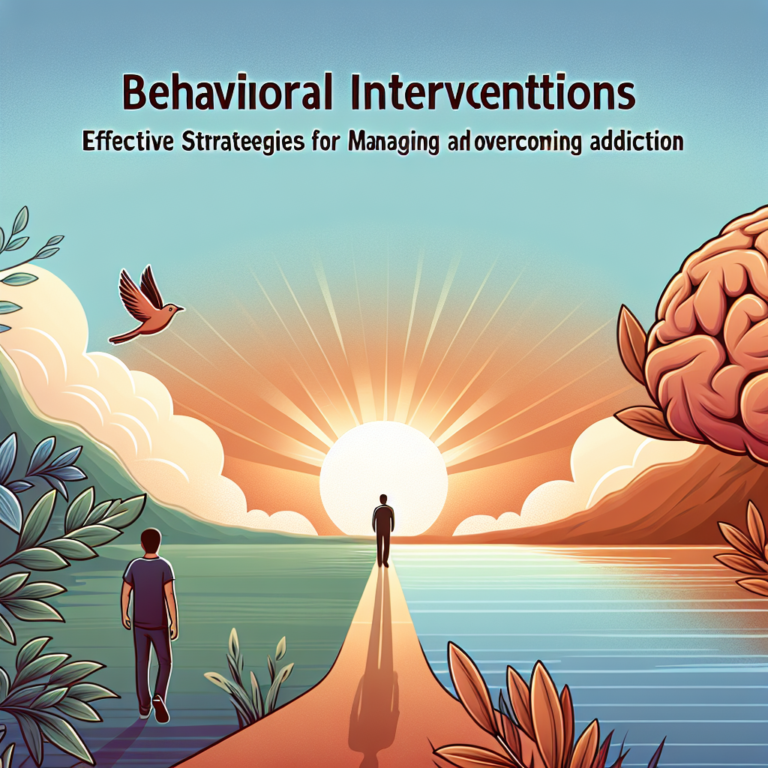
Stress Less: Behavioral Strategies to Rewire Your Reactions for Ultimate Calm
Introduction
In a fast-paced world where deadlines loom and responsibilities pile up, stress has become a common, almost expected part of life. The toll it takes on our mental and physical health is undeniable, yet many people feel powerless to change their reactions to stressors. Enter the concept of Stress Less: Behavioral Strategies to Rewire Your Reactions. What if you could train your mind to respond differently to stress, leading to a life filled with more calmness, clarity, and contentment?
In this article, we’ll explore practical strategies that can help rewire your reactions to stress. Drawing upon recent research, real-life case studies, and engaging insights, we aim to provide you with tools to not just cope with stress but to thrive in its presence.
The Nature of Stress: Understanding Your Reactions
What is Stress?
Stress is a natural response to a perceived threat or challenge, often referred to as the "fight or flight" response. However, in our daily lives, many stressors are not life-threatening, yet they trigger the same physiological responses. Understanding this reaction is critical; after all, knowledge is the first step toward change.
The Impact of Chronic Stress
Chronic stress can lead to a host of physical and mental health issues, from anxiety and depression to cardiovascular problems and weakened immune function. According to the American Psychological Association, prolonged stress significantly diminishes overall quality of life, highlighting the urgency to adopt Stress Less: Behavioral Strategies to Rewire Your Reactions.
The Science of Rewiring Reactions
The brain is malleable; it can change based on experiences—a concept known as neuroplasticity. By implementing specific behavioral strategies, you can significantly alter your stress responses over time. Embracing a proactive approach to stress management can transform your life, creating pathways in the brain that prioritize calmness over chaos.
Behavioral Strategies to Manage Stress
1. Mindfulness Meditation
Mindfulness is the practice of being present in the moment without judgment. Studies have shown that engaging in mindfulness meditation can significantly lower stress levels, even in challenging situations.
Case Study: The Mindfulness-Based Stress Reduction (MBSR) Program
The MBSR program, developed at the University of Massachusetts, has helped thousands of participants rewire their stress responses. One participant, Sarah, a busy executive, reported a 50% decrease in her anxiety levels after six weeks of meditation practice. She learned to pause and respond to stress from a place of calm rather than react impulsively.
| Key Findings from MBSR Program |
|---|
| 50% decrease in stress levels in participants |
| Improved emotional regulation |
| Enhanced overall well-being |
2. Cognitive Behavioral Therapy (CBT)
CBT focuses on identifying and challenging negative thought patterns that contribute to stress. By changing how you think about stressors, you can change how you feel.
Case Study: John’s Journey Through CBT
John, a college student facing severe exam anxiety, sought CBT to help him cope. Through identifying his negative thoughts—such as “I will fail”—he learned to replace them with constructive beliefs, leading to improved grades and reduced anxiety.
3. Physical Activity
Engaging in regular physical activity has been proven to enhance mood and reduce stress. Exercise increases the production of endorphins, which are known as the body’s natural painkillers and mood elevators.
Case Study: The Corporate Wellness Program
A corporate wellness program at a tech firm incorporated regular group workouts. Employees reported a 40% decrease in stress-related absences and an increase in overall productivity. This example shows how workplace initiatives can leverage Stress Less: Behavioral Strategies to Rewire Your Reactions effectively.
4. Goal-Setting Techniques
Setting attainable goals can help channel stress into motivation. By breaking larger tasks into smaller, realistic goals, you can manage your workload and reduce anxiety.
Case Study: Lisa’s Time Management Improvement
Lisa, a project manager, was overwhelmed by multiple deadlines. By adopting SMART (Specific, Measurable, Achievable, Relevant, Time-bound) goals, she reported feeling more in control and less stressed, completing projects on time without sacrificing her well-being.
5. Social Support Systems
Building a strong social network can be a lifeline during stressful times. Sharing experiences and feelings with others often leads to relief and solutions.
Case Study: The Support Group Effect
A study of support groups for cancer patients revealed that those who participated reported higher levels of emotional well-being and lower levels of stress. The power of community reinforces the importance of social connections in our lives.
6. Limit Stimulants and Improve Sleep Hygiene
Caffeine and sugar may offer temporary boosts but lead to crashes that heighten stress. Improving sleep hygiene—creating a restful environment and adhering to a regular sleep schedule—can further optimize your mental state.
Case Study: Emma’s Sleep Transformation
Emma struggled with anxiety due to poor sleep habits. After implementing a bedtime routine and reducing her caffeine intake, she noticed significant improvement in her stress levels, enabling her to face daily challenges with greater resilience.
Implementing the Stress Less Strategies
Creating a Personal Stress Management Toolkit
To effectively integrate Stress Less: Behavioral Strategies to Rewire Your Reactions into your life, create a personal stress management toolkit. This could include mindfulness apps, physical activity schedules, supportive friends, and journal prompts. Consistency is key; allow time for these strategies to reshape your psychological landscape.
Measuring Your Progress
Tracking your feelings and stress levels can help you identify which strategies work best for you. Consider using a stress journal to reflect on daily stressors, your reactions, and the effectiveness of your coping strategies.
Conclusion
Mastering your reactions to stress is not an overnight endeavor but a journey. The strategies highlighted in Stress Less: Behavioral Strategies to Rewire Your Reactions provide actionable steps toward redefining your relationship with stress. By incorporating mindfulness, cognitive restructuring, physical activity, goal-setting, and strengthening social connections, you can build resilience and embrace a calmer, more fulfilling life.
With dedication and compassionate self-awareness, you can empower yourself to face life’s challenges with confidence and ease. Let this article serve as a guide to your transformation. As you begin to implement these strategies, remember that progress is a process—celebrate every small victory!
FAQs
1. How long does it take to see results from stress management techniques?
Results can vary, but many people report positive changes within a few weeks of consistent practice.
2. Can these strategies be implemented together?
Absolutely! Combining different strategies may enhance their effectiveness.
3. What if I struggle to implement these techniques alone?
Consider seeking professional help, such as a therapist or counselor, who can provide support and guidance.
4. Are there any risks associated with stress management techniques?
Most techniques are safe; however, consult with a healthcare professional if you are unsure, especially regarding physical activity.
5. Can children benefit from these strategies?
Yes! Many of these strategies, like mindfulness and goal-setting, can be adapted for children to help them manage stress.
Incorporating Stress Less: Behavioral Strategies to Rewire Your Reactions into your life can lead you toward achieving balance and infusing joy into everyday experiences. Whether you’re facing work challenges, personal hurdles, or life transitions, remember that the power to change is in your hands. Start today, and watch as stress transforms from a daunting adversary into a manageable aspect of life.















